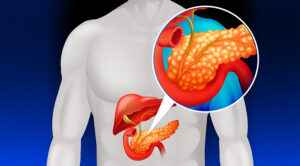If we look at the world statistics, stomach cancer is the second most common cause of cancer-related deaths globally. The prevalence of stomach cancer or gastric cancer in India is lower than in most developed parts of the world. However, certain Southern and North-Eastern parts of the country display high incidences. It is the fifth most common cancer among males and the seventh most common cancer among females in India.
As stomach cancer is quite aggressive and patients are often troubled by late detection, it is essential to understand and look closely for symptoms of the disease.
When the cancerous cells in the stomach region or the stomach lining grow abnormally without any specific reason, doctors call it stomach cancer or gastric cancer. Genetic, immunologic, and environmental factors: there can be many causes of gastric cancer.
WHAT ARE THE EARLY SIGNS AND SYMPTOMS OF STOMACH CANCER?
I have frequent stomach problems and indigestion issues.
I am tired of bloating, heartburn, and gas troubles.
I was recently diagnosed with jaundice, and I have trouble eating food.
Often, patients complain of common digestive disorders and ignore them. But, the biggest problem with any GI cancer is that the early symptoms are identical to common GI issues. However, if you can detect the signs in the early stages, a GI cancer surgeon will treat stomach cancer quite successfully.
- Do you face recurring pain, bloating, or discomfort in the stomach or abdominal area?
- Do you feel pain in the breastbone?
- Are indigestion and heartburn a constant problem for you?
- Do you experience trouble swallowing food? Do you feel the morsel of food gets stuck in your throat?
- Loss of appetite is a sign of gastric cancer.
- Do you feel unusually full after consuming a small quantity of food?
- Jaundice or yellowing of skin, nails, and eyes can be due to stomach cancer.
If you notice any problems consistently, do not resort to home remedies. Early detection of stomach cancer can save you and help you enjoy a cancer-free life.
DOES ADVANCED STOMACH CANCER SHOW CLEAR SYMPTOMS?
The human body has different organs to function optimally. And, they are connected to multiple body systems such as the skeletal system, muscular system, circulatory system, nervous system, digestive system, etc. Each bodily system is interconnected and dependent on one another to keep you alive. So, you may not know there is a tumor in your stomach, and you may experience symptoms elsewhere.
However, if you suffer from the following signs, it may be that the stomach cancer has progressed, and you require urgent medical attention.
- Do you notice blood in your vomit?
- Have you seen blood in stools or experienced very dark-colored stools?
- Or did you notice bright red blood on the toilet paper after use?
- Is there blood on the toilet?
- Do you have fluid buildup in the stomach?
- Have you lost a lot of weight recently without any intervention?
- Do you have weakness and fatigue even after zero to minimal physical activity?
- Has the doctor diagnosed you with anemia?
Experiencing one or two symptoms does not confirm the presence of stomach cancer. Even suffering the majority of them does not mean you have cancer. But, if you are troubled by the problems now and then, it is crucial to visit a surgical gastroenterologist.
A surgical gastroenterologist is a super-specialist doctor experienced in treating diseases of the entire human GI tract, including the stomach. With experience in stomach cancer treatment, the GI cancer surgeon will be able to perform complicated stomach cancer surgeries and provide tertiary care to help patients enjoy a better quality of life. Learn more about a surgical gastroenterologist here.
HOW WILL A GI CANCER SURGEON DIAGNOSE STOMACH CANCER?
When you visit a stomach cancer doctor, they will ask about your medical history (personal and family history of cancer) and conduct a thorough medical examination. To diagnose stomach cancer and rule out other problems, you will have to undergo a few tests.
- A blood test is necessary to understand whether your body is affected by cancer.
- With the help of an upper GI endoscopy, the doctor will look for signs of stomach cancer.
- They may recommend a biopsy test to remove the tissue sample and test in the laboratory for cancer cells.
- Imaging tests such as CT scans and PET (Positron Emission Tomography) may become essential.
- In cases of advanced stomach cancer where cancer has spread to different parts of the body, a diagnostic laparoscopic surgery becomes necessary.
Once the tests confirm stomach cancer, the surgical gastroenterologist will decide the mode of treatment depending on the patient’s condition and the spread of cancer. Stomach cancer is treatable in the earlier stages of the disease. The doctor may perform a gastrectomy (subtotal or total) to remove part of the stomach affected by cancer. It is possible that the cancerous cells spread to lymph nodes around the stomach region. In such a situation, a lymphadenectomy becomes necessary to treat the disease.
WHAT IS THE BEST WAY TO FIGHT STOMACH CANCER?
The best way to fight cancer is to undergo routine medical checkups at your surgical gastroenterologist. If you have a medical history of cancer or a genetic disposition of stomach cancer, regular health checkups become all the more necessary.
There is no reason to panic and fear the disease. Not every symptom related to your digestive system confirms the existence of stomach cancer. But, the earlier the GI cancer surgeon detects cancer, the more successful the clinical outcomes. So, book an appointment with your trusted surgical gastroenterologist today.
Consult Surat’s top-rated GI surgeon for the best stomach cancer treatment. Seek treatment for stomach problems to improve quality of life.





